What I Did with my Philosophy Degree
Our department's thriving alumni network demonstrates that a major in philosophy continues to make an impact on students well after they have graduated. The philosophy department has compiled a database of graduates of our department from the past 20 years who are interested in talking and networking with current undergraduates. To request access to the alumni database, please contact Michelle Brown. Please read on to learn about the experiences of some Philosophy alumni, and what they are doing with their degrees.
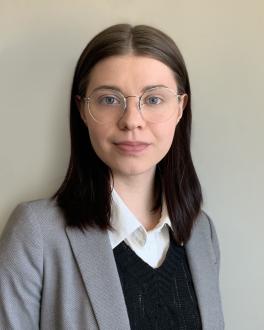
Rachel Crowl
I graduated from OSU in the Spring of 2020 with a double major in Philosophy and International Studies. I entered my Freshman year with the intention to double major in Economics and International Studies, but after taking an Introduction to Philosophy lecture in my first semester, I was so excited by Philosophy that I decided to change majors. Studying Philosophy taught me new ways of thinking, reading, and writing that were challenging and stimulating. I genuinely enjoyed all of my classes.
After graduating, I began a service year as an Americorps VISTA (Volunteer in Service to America) in Portland, Oregon. I’m serving with a research network at Oregon Health and Science University, on a study focused on measuring the social needs (housing, food, transportation, etc.) of Medicaid and Medicare patients. My work focuses primarily on community integration and making sure that health care providers, insurance companies, and community organizations are communicating with each other and with community members to make sure that patients are able to access the resources they need. My International Studies major prepared me well for the quantitative, data-focused aspects of my work, but my background in Philosophy has also had an impact on the way I do my work. It especially prepared me to address difficult moral questions about community engagement and health equity.
This upcoming fall, I will begin pursing a J.D. at Yale Law School. Studying Philosophy was a major aid in helping me decide that law school was the right path for my future and in preparing for law school. I took and enjoyed many Logic courses, which taught me to think in ways that prepared me well for the LSAT and that will be beneficial during law school. Philosophy has also helped me to consider the ethical implications of my work and solidify my goal of beginning a career in Public Interest Law.
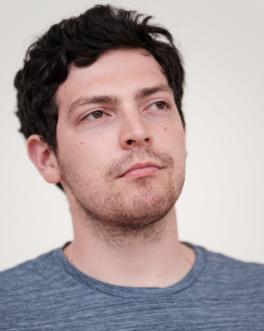
Adam Levine
I graduated from Ohio State in 2017 after studying Philosophy and Economics, and decided to move to Chicago to pursue stand-up comedy without having a day job lined up. I eventually found a flexible job at BallotReady, a voting and elections software start-up where I work on sales strategy. Courses I took in Philosophy of Religion, Ethics and Symbolic Logic help me analyze lots of data points to build financial models and business strategies. As far as my comedy career has gone, I’ve performed at the Laugh Factory, Zanies, Second City, Flappers and a couple of festivals too. Now I am moving to NYC to further my career. My typical day is long, filled with work from 10-6 and then nights telling jokes in bars, clubs and theaters to mostly great audiences and sometimes the unfortunate lone audience member. The most important aspect in my comedy and day job is being able to make connections between seemingly disparate ideas to create novel solutions that hold up analytically.
Studying philosophy is not a requirement for writing jokes but I learned how to quickly get to the point (i.e., joke) and I also learned that there’s some logic to every joke that isn’t just a funny story or impression. I hear people say that stand-up comics are the modern day philosophers and I think that’s not fair. Telling jokes is actually much harder. We can make all the same points but also have to add jokes. Imagine writing a paper but every tenth word needs to get a laugh. Jokes work because the comic has a new angle on an idea that logically flows from set up to punchline, just as philosophers draw new conclusions that logically follow from their premises.
The most common question I got when I told people of my philosophy major was “What are you going to do with that degree?”, as if the only reason to go to college is to get a job. I certainly understand that sentiment, but philosophy prepared me for a job the way a major should while also providing the benefits of studying humanities that make you a well-rounded and adjusted person outside of your job—in what is also known as your life. Philosophy has been so helpful to me in figuring out what news sources are best to digest, assigning meaning to relationships and life's path, navigating faith, solving trolls' riddles to cross bridges, and my personal favorite: defending LeBron in the “who is the best basketball player” conversations at my barbershop.
Kailum Ijaz
After working for 9 months, I decided take a risk and do something I'd always wanted to do: I quit my job and dedicated a year of my life to service. Thus, I began working as a full-time member of the Alumni Volunteer Program at my High School Alma Mater--St. Ignatius High School in Cleveland, Ohio. For one year, I ran different outreach programs at the High School. From organizing logistics for the St. Joseph of Aramathea Pallbearer Society (an organization that provides free Pallbearer services for persons who pass away with no one to act as pallbearers), to running three after school programs for at risk inner city students in the area, to helping out with the St. Benedict Joseph Labre Ministry for the homeless (a ministry that provides food and friendships for the homeless in Cleveland). It has been a joy to give back to my community and reconnect with my Catholic Faith. Since the dedicated year of service ended, I have been working as a project manager at a software company in Cleveland.
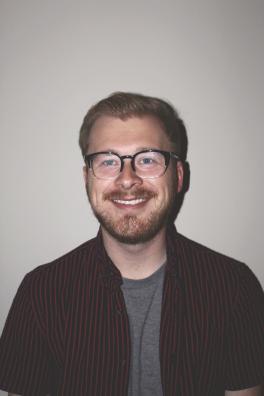
Dylan Tuttle
I graduated in May 2019 with a double major in Public Policy Analysis and Philosophy, as well as an Economics minor. I thoroughly enjoyed my experience at OSU and within the Philosophy Department. Some of my favorite classes were Symbolic Logic, Political and Social Philosophy, and Morality and the Mind. What I appreciated most about my experience in the Philosophy Department was the classroom environment that the Philosophy professors fostered. In every single class, professors strongly encouraged each student to express their thoughts and engage with the readings and other classmates’ thoughts.
After graduating, I started working as a Consultant for BerryDunn’s Government Consulting Group—primarily supporting State Medicaid Agency clients with their efforts to modernize their Medicaid Enterprise Systems (MES). The Philosophy major really helped me during this transition. My job requires a great deal of critical thinking, analysis, and communicating complex ideas to a range of audiences—technical folks, policy folks, business folks, etc. The Philosophy major’s emphasis on critical thinking, clear writing, and respectful discourse directly translate to my daily job responsibilities.
Beyond my job, my experience as a Philosophy major fundamentally impacted my overall worldview and beliefs about notions of justice, equality, morality, fairness, and logic. I cherish the type of thinking and skill sets that the philosophy department fosters in its students, because I genuinely believe my experience helped me become a better, more informed human being.
From my experience both interviewing for jobs and then being on the other side of the table, I have a little more perspective now about this process. One piece of advice I’d offer to students who are making the transition to the working world is to be sure to explain how their training has prepared them. Philosophy can seem out of grasp for some people, so it’s often better to for a job applicant to elaborate on the value of their degree by saying “My experience as a Philosophy major required me to analyze and interpret complex texts, present the strengths and weaknesses of the authors’ arguments, and argue for my own conclusions,” rather than simply saying “My Philosophy major strengthened my writing.”
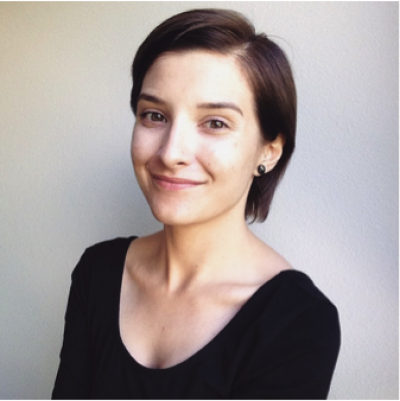
Amanda Kaczmarek

Jeff Manghillis
When I told my parents that I was going to major in philosophy, they were concerned about what I would do after graduation. But majoring in Philosophy was, without a doubt, the right choice for me. My philosophy classes at Ohio State engaged, challenged, and even impassioned me in ways other classes did not, That motivation drove me to do my very best at school and helped me get into law school. What I learned was invaluable both during law school and my career path. In the end, my parents were proud that I followed my passions.
After graduation in 1997, I received my law degree from Harvard Law School, clerked for a federal judge, and practiced corporate litigation at Jones Day, an international law firm. At Jones Day, I successfully argued twice before the Sixth Circuit Court of Appeals (one court below the Supreme Court), pioneered a new defense to fraud claims, and was part of team that freed a client who was on death row (pro bono). After several years, I decided to make a career change and got an MBA from Ohio State. After graduation, I went to work for McKinsey and Company as a management consultant and helped tackle some of the biggest issues for several Fortune 500 companies. Currently, I work in internal strategy for Huntington Bank, have taught an MBA class at Fisher College of Business, and volunteer on the Customer Excellence Committee at the Mid-Ohio Food Collective.
My career has taken some unexpected turns since I graduated from Ohio State. Through it all, my Philosophy degree has helped me ask the right questions, methodically tackle those questions, develop and support a hypothesis, and respect others' hypotheses, especially when they differ from my own. As a bonus, it helps provide a perspective with everything going on in the world today (John Rawls' veil of ignorance has been raised by others in numerous conversations over the last few months). I look back at my time as a philosophy major at Ohio State with great fondness and am very grateful for everything I learned and experienced.
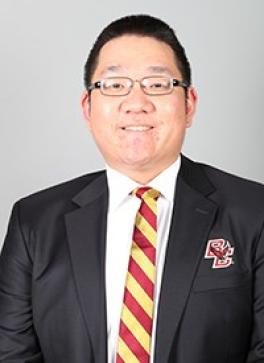
Jason Kwon
One of my favorite parts of studying philosophy at OSU was the relationships that I formed with my professors. Even though philosophy offers such complex and tough subjects, you never feel too intimidated because the vast majority of your professors patiently guide you through the material right until you get it. Beyond the material, they care for your well-being. They are very understanding that there is life outside of school, and they treat you like an adult. They also make it fun to come to class. Discussions are always engaging, not just regurgitating the material we read about but thinking about how it applies to concrete things.
I graduated from OSU in Spring of 2018. While in school, I got interested in football player personnel and scouting at the college ranks. I started off as an intern for Ohio State University under the direction of my mentor, Mark Pantoni. I made great relationships there and I guess I performed well. I was hired by then Defensive Coordinator Jeff Hafley to come to Boston College with him to help him build up the culture, roster, and team. Philosophy prepared me well for this job. Beyond the evaluation standpoint, the job requires a lot of thinking and expressing in writing, and my philosophy degree prepared me well for these duties.
Currently, I serve as the Director of Scouting for Boston College Football. At first, it did not seem like philosophy directly applied to the position. However, when I consistently got comments on my writing and how I was able to explain complex things in written form, I realized my philosophy degree really made a difference. Writing in the “real world” is just like how our papers and exams were. You have to convey very complex material that seems easy to discuss orally (like we did in office hours) but you need to know how to express it carefully in writing, or else people will be confused!
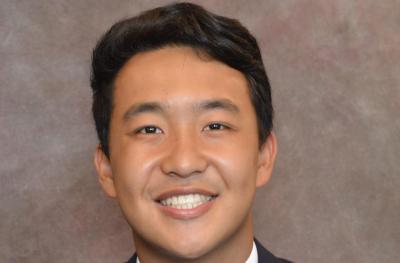
Henry Wu
Henry Wu graduated with a degree in Philosophy and Political Science in Spring 2020. He was awarded a Rhodes Scholarship to study at Oxford University. Read about his time as a philosophy major and his future plans in this interview.

Katie Petro
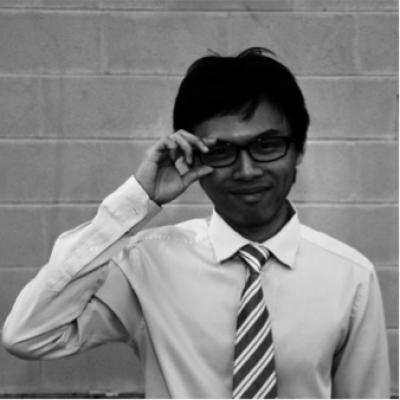
Kok-Hin Ooi
After graduation in 2015, I began work with a research institute in my hometown, Penang (a state in Malaysia). It's a state think-tank. I work as a research analyst in the Political and Social Analysis department.
Chris Tavenor
I graduated from Ohio State in May 2014 with a Bachelor of Arts in Philosophy and a Minor in English. I immediately entered law school at Ohio State the following semester, graduating with my Juris Doctorate May 2017. After law school, I became the Ohio Environmental Council’s first Law Fellow, where I use my legal writing skills to protect Ohio’s air, land and water. In addition to my legal pursuits, I am an independent science fiction and fantasy author and freelance editor.
It also informed my secondary career. As an independent author, I strive to inject provocative thought into everything I write. Good stories entertain, while great stories both entertain and make their readers contemplate profound questions. I like to think I achieved that goal, though that’s a question for my readers!
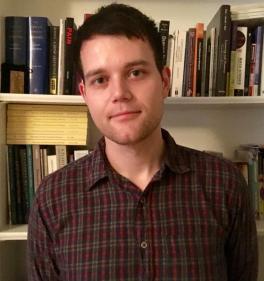
Brad Griggs
After graduating from OSU’s undergraduate philosophy program in 2015, I took some much needed time off to pursue endeavors that were out of my reach as a full-time student. Most notably, I used this time to travel both domestically and abroad in order to see what life is like outside of campus borders. However, I have not abandoned academia. Shortly after graduating, I participated in OSU’s Center for Cognitive and Brain Science’s inaugural Undergraduate Summer Institute. I also spent a semester back at OSU as a guest in a few courses that I never had a chance to take while I was a student. And as of 2018, I am pursuing a Ph.D. in Philosophy at the University of Cincinnati.
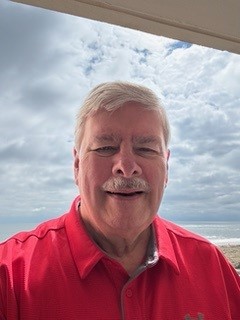
Jim Walsh
I graduated with a B.A. in 1974, majoring in philosophy.
I entered employment in the property casualty insurance business while I awaited opportunity to go to law school. I actually never looked back, spending the next 45 years in various roles in the insurance industry.
My father had impressed upon me in my pursuit of an Accounting degree, that employment in accounting or business would not occur merely because someone needed basic business accounting knowledge. They would expect me to learn how accounting was relevant to their business. A degree in accounting would demonstrate to my prospective employer that “I had learned, how to learn”, something relevant for their business. When I told him I was moving from accounting to philosophy, he asked where I expected to land - “perhaps I could be a priest”. I rose to be a VP of a Fortune 400 property casualty insurer.
I had a friend whom I had encountered in two of the basic elective philosophy courses. At the time I was pursuing a degree in Accounting, as was Don. We really enjoyed the classes, largely because of the educators leading them. And we got what we ourselves considered a wild idea: to major in Philosophy.
Then we went nuts. We went to the Chair of the Department of Philosophy with an ambitious and perhaps foolhardy idea. “Could we be permitted to take a few graduate level courses?” Those sounded more interesting to us. We were strongly cautioned, told that we would have to have completed the basic courses for the degree program before doing so. Most significant was the caution that we would be judged as graduate students are judged. No handholding. No rationalization. We were drawn to the risk of being challenged to think at higher levels. Off we went. Read more here.
